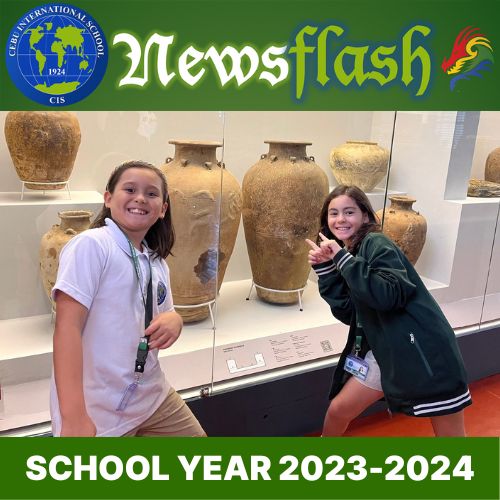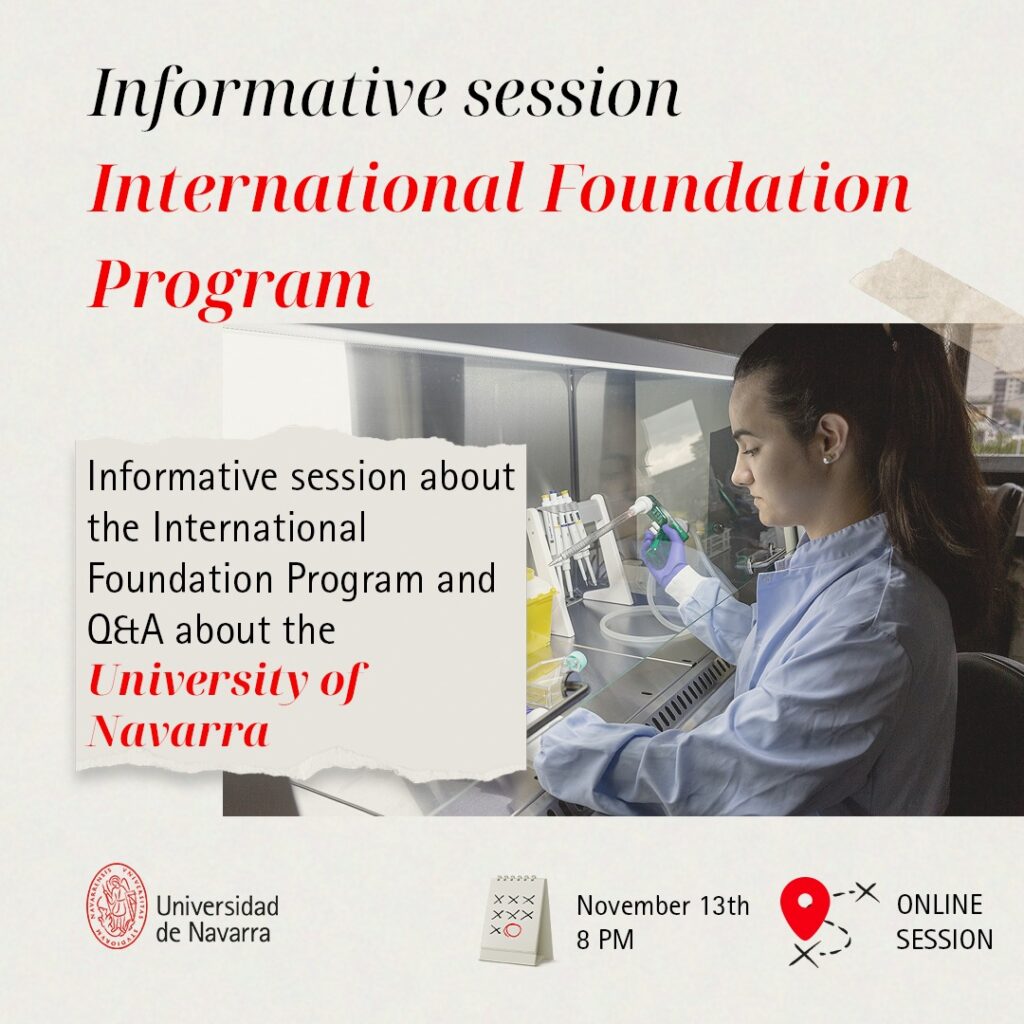
Admin News
by Dr. Gwyn Underwood, Superintendent
Congratulations to our student-athletes for their efforts at the recent ISAC Volleyball tournament in Manila. Our boy’s team reached the final and came in second place, while our girls came in fourth. We are all very proud of how well they developed their skills over the season, and how they represented our school in such a responsible and respectful way. We trust the lessons they learned on and off the court will stand them in good stead.
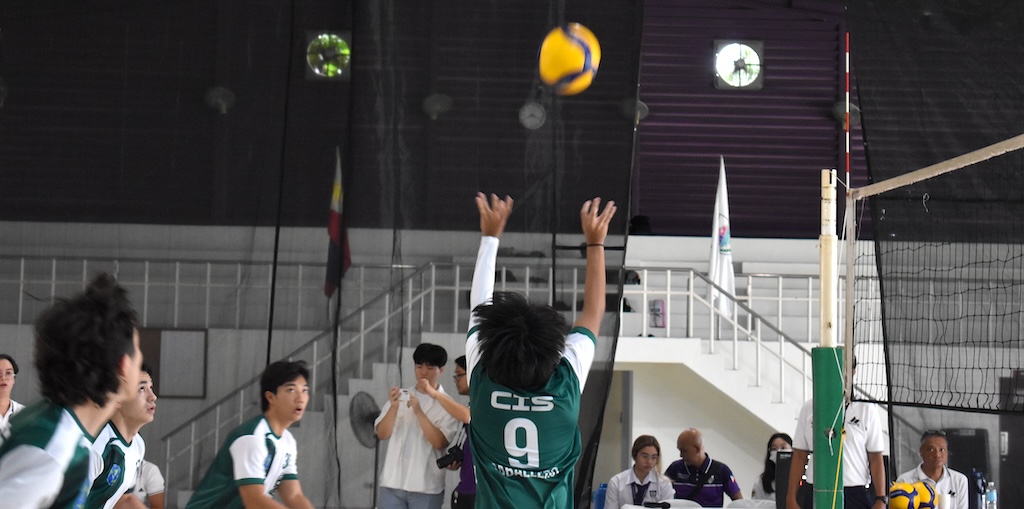 As we approach the final month of our first semester, it is great to see the learning happening at each grade level in so many ways. We know from research and our own experiences that we learn best when we are in a safe, supported environment, so what can we do to promote this? And as students get exposed to the various excessive stress points that typically emerge at this time of the year, how can we help? This includes the various pressures that come from academic and extracurricular activities, but even more importantly as a child, how to self-regulate emotions and deal with relational issues that grow beyond their capacity to cope. Here are a few areas parents can consider to support their children through such challenges, and overall, help you to become the most awesome, supportive parent possible!
As we approach the final month of our first semester, it is great to see the learning happening at each grade level in so many ways. We know from research and our own experiences that we learn best when we are in a safe, supported environment, so what can we do to promote this? And as students get exposed to the various excessive stress points that typically emerge at this time of the year, how can we help? This includes the various pressures that come from academic and extracurricular activities, but even more importantly as a child, how to self-regulate emotions and deal with relational issues that grow beyond their capacity to cope. Here are a few areas parents can consider to support their children through such challenges, and overall, help you to become the most awesome, supportive parent possible!

In order to supplement my 30 years of experience as an educator with science-based advice, I have chosen three key areas to highlight, and have supplemented these with selected words of advice from Eric Barker, author of “Barking Up the Wrong Tree” and “Plays Well with Others” (italicized when referenced; refer to the links below for a couple of relevant articles below for more details and supporting links).
1. Look after yourself! Just like they remind us in airplane emergency briefings, you can be most helpful when you yourself are in a good state to do so. This also helps them as you are also a key role model (covered further in #3 below!). Barker notes. “Happy parents make for happy kids. As James Baldwin once said: ‘Children have never been very good at listening to their elders, but they have never failed to imitate them.’”
2. Connect! You are your child’s greatest advocate! What you can do if you can connect is powerful – but it is not as easy as it sounds. Some specific advice from Barker to help you includes:
- Connect: Communicate comfort, validate feelings, listen and reflect.
- Reduce Words: Seriously, when have lectures ever worked?
- Embrace Emotions: All feelings are permitted; all behaviors are not.
- Describe, Don’t Preach
- Involve Your Child In The Discipline: “What’s a way to express your anger that doesn’t involve anyone getting 27 stitches?”
- Reframe A “No” Into A Conditional “Yes”: “Yes, you can watch ‘Toy Story’ for the 400th time — after mommy finishes this wonderful blog post she’s reading.”
- Emphasize The Positive: Instead of “No whining,” try, “I like it when you talk in your normal voice. Can you say that again?”
- Creatively Approach The Situation: “I’ll bet I can eat my vegetables faster than you can.”
- Rituals: Have family dinner together. Get superhero Grandmom on Zoom.
- Empower: If you don’t start teaching them to be autonomous at 7 they will be living with you at 37.
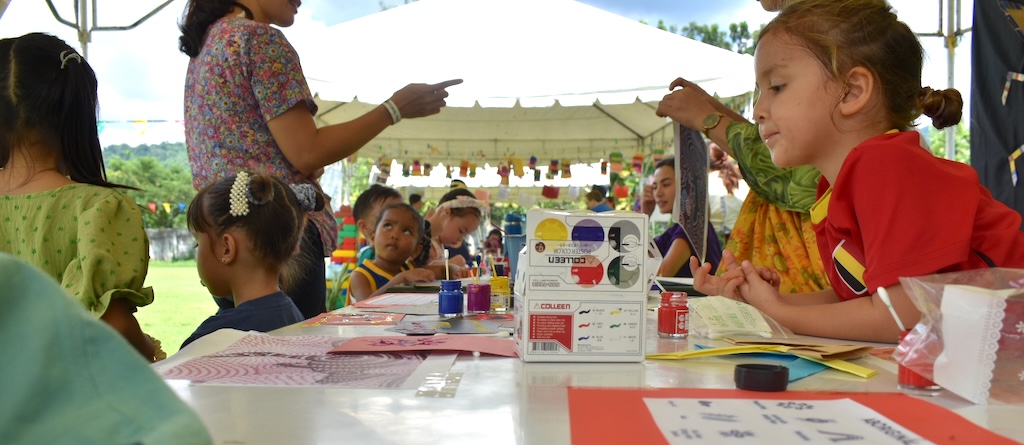
3. Instill desirable values. These range from the same Learner Profile Attributes and Approaches to Learning and Five Respects that we teach at school, to Emotional Intelligence, family values, beliefs, and customs, and how to develop a positive growth mindset. Remember
- Awareness is key – for both you and your child/ren. As Barker reminds us, “You can’t improve how you deal with something if you’re not aware of it.”
- Explicitly ensure your children are made aware of, and develop, the areas above from the time they are born. The earlier they learn them, the better they will be able to cope with the pressures of this world!
- Children learn values through observation particularly well, so it is critically important for you to do your best to lead by example in these areas too!
It is easy to list these, but I think we all know it takes a superhuman to really do all of these things! Just do your best and keep trying. Also, encourage those around your children to also help. There is some truth to the saying, “It takes a village to raise a child!”. Finally, please consider your child’s teachers as collaborators in the quest to support your child, and do not hesitate to ask them for advice on any areas you would like help with. Together, we can do it. Go Dragons!
Sources:
- New Neuroscience Reveals 9 Rituals That Will Make You An Amazing Parent by Eric Barker (Nov 2018)
- New Neuroscience Reveals 5 Rituals That Will Make You An Awesome Parent by Eric Barker (Jan 2021)
Have a wonderful long weekend, and remember Monday is a school holiday (it is a compensatory day for our faculty and staff who will be working over the weekend on professional learning tasks!).
Upcoming events of note
- Nov. 13: School Holiday
- Nov. 20 – 24: Book Week
- Nov. 24 – 25: School Production (Honk)
- Nov. 26: CIS Touch Rugby Series
- Nov. 27: School Holiday (official optional date for Nov. 30 Bonifacio Day)
- Nov. 28: PTA Coffee Morning
- Dec. 1: End of Sem. 1 Clubs
- Dec. 2: Tree of Giving
Please refer to the CIS Event Calendar for the complete calendar of school events.

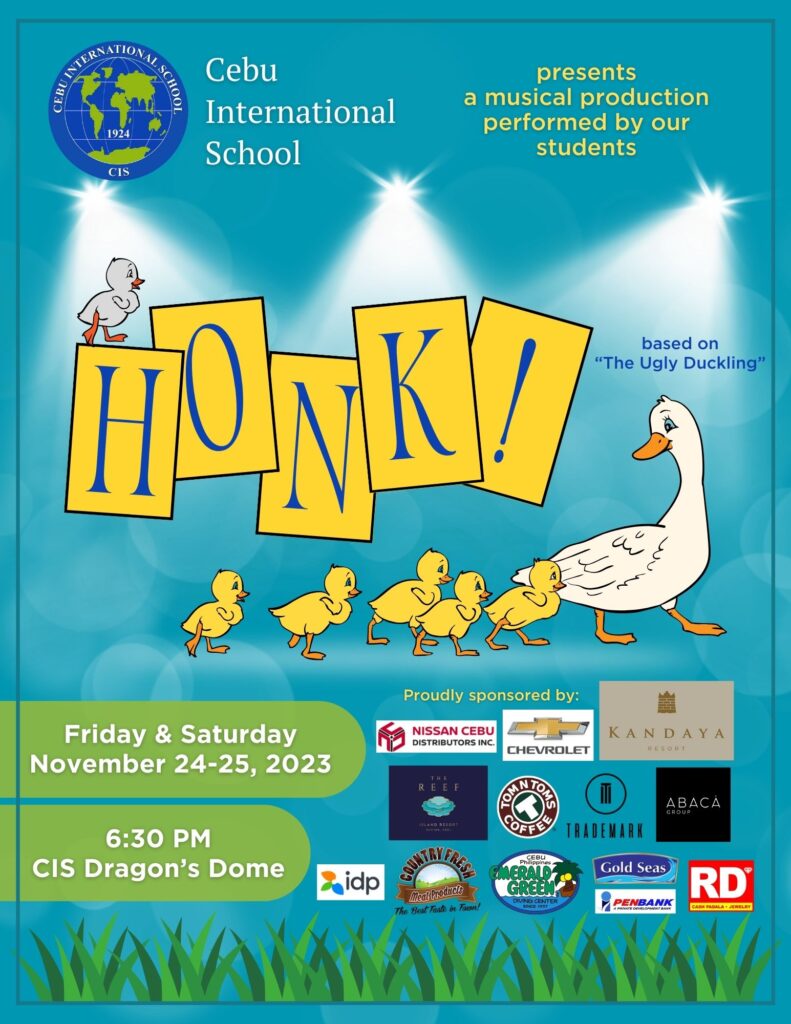
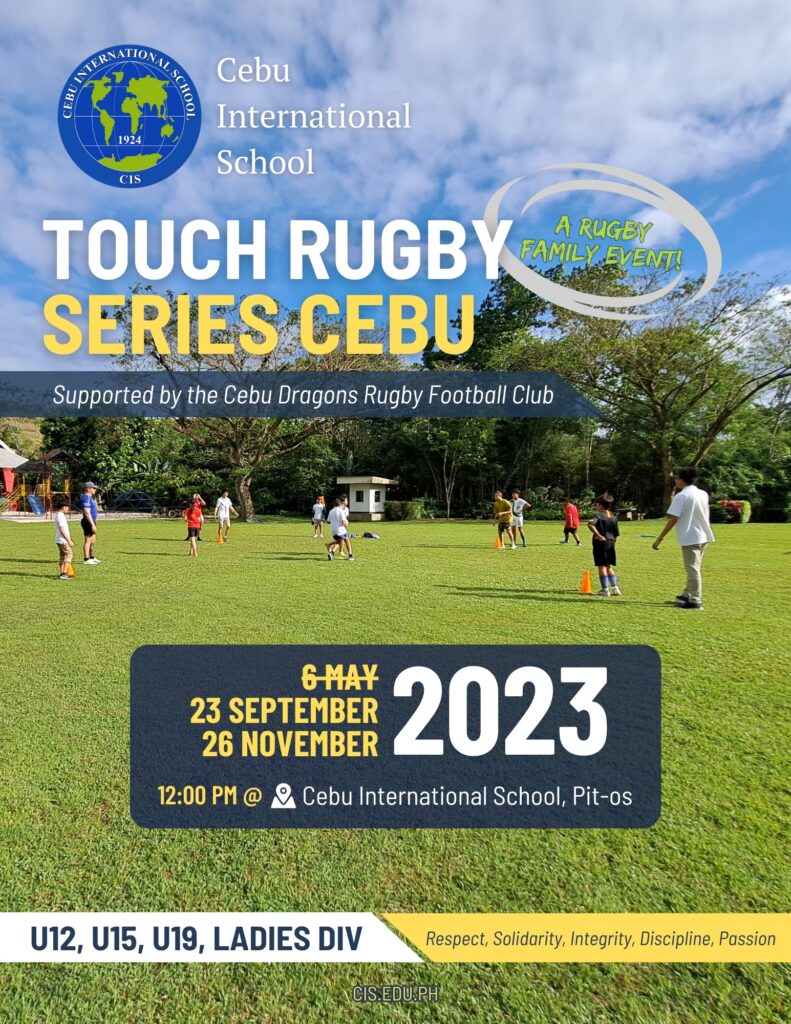
EY/Kinder/Grade 1 Classes
by Mary Alexis “Maya” Mendez, Philippine Language and Culture Teacher
Philippine Language & Culture: You, Me and The Community
The discovery continues as the Early Years and Kinder/Grade One classes explore more about their host country, the Philippines, and more specifically the island of Cebu! Their enthusiasm towards learning new Filipino and Cebuano words, ideas, and concepts is evident as they never fail to find connections with their own language and culture, too.
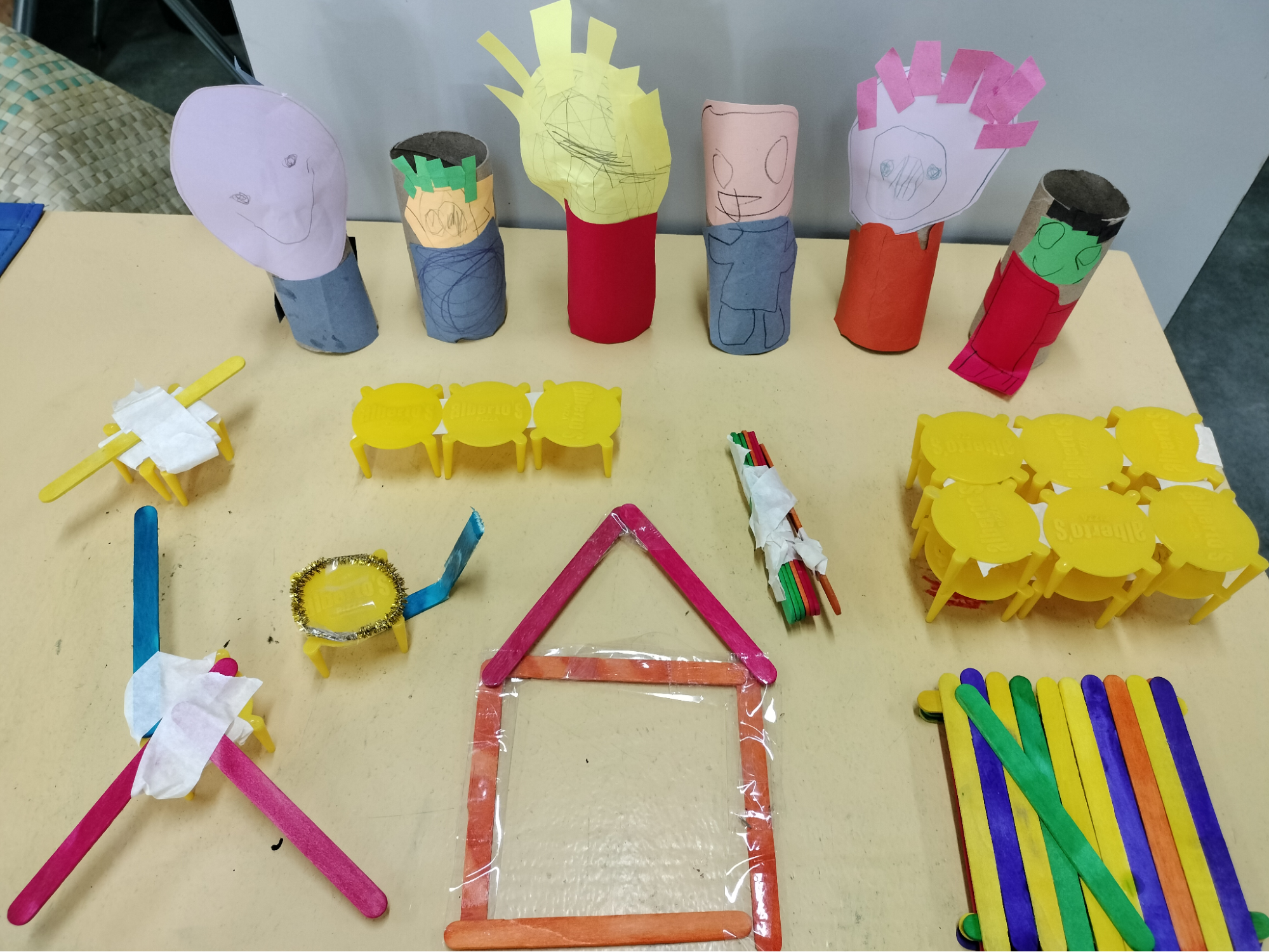 During our first unit in the Early Years, we discussed local geography focusing on their own homes. The students were eager to share about their families, the activities they love to do together, and even their routines at home! They were introduced to the bahay kubo, a traditional Filipino house, and were shown the different traditional houses from other countries as well. This made them realize that the materials and structure of the houses may differ, but they still have the same parts, rooms and purpose.
During our first unit in the Early Years, we discussed local geography focusing on their own homes. The students were eager to share about their families, the activities they love to do together, and even their routines at home! They were introduced to the bahay kubo, a traditional Filipino house, and were shown the different traditional houses from other countries as well. This made them realize that the materials and structure of the houses may differ, but they still have the same parts, rooms and purpose.
Now, they are working on making their own bahay kubo dollhouse as a class, showing how they can work together despite differences in personal and cultural backgrounds. They have displayed being balanced in making fair decisions and showcased how their uniqueness can impact the community.
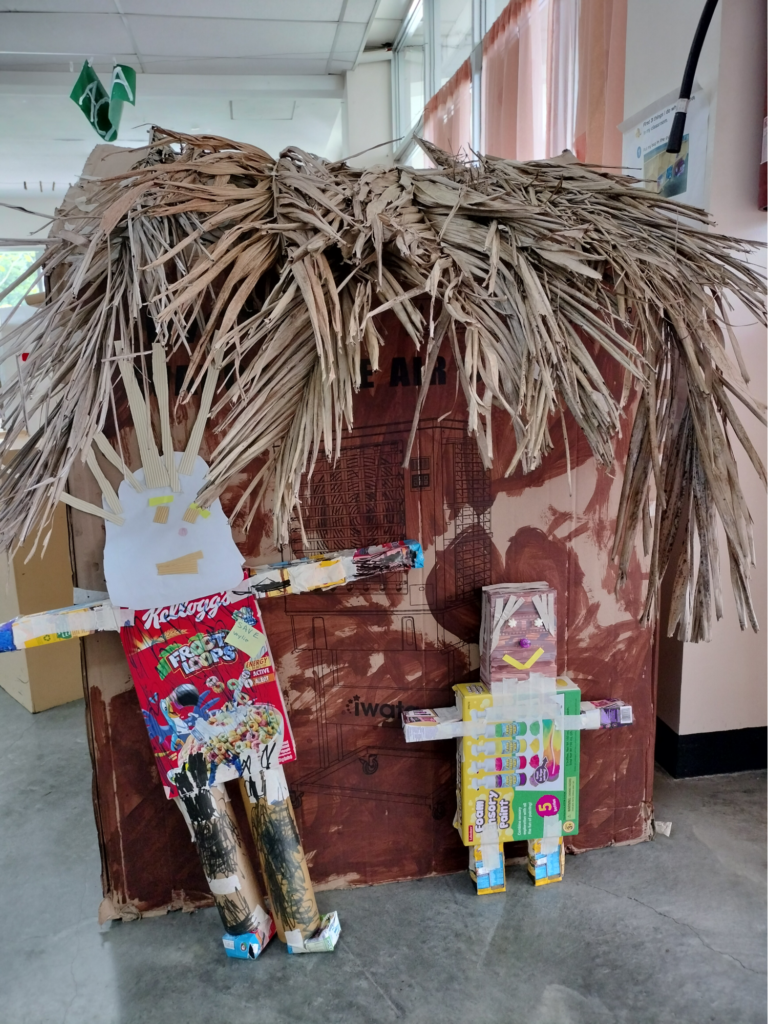
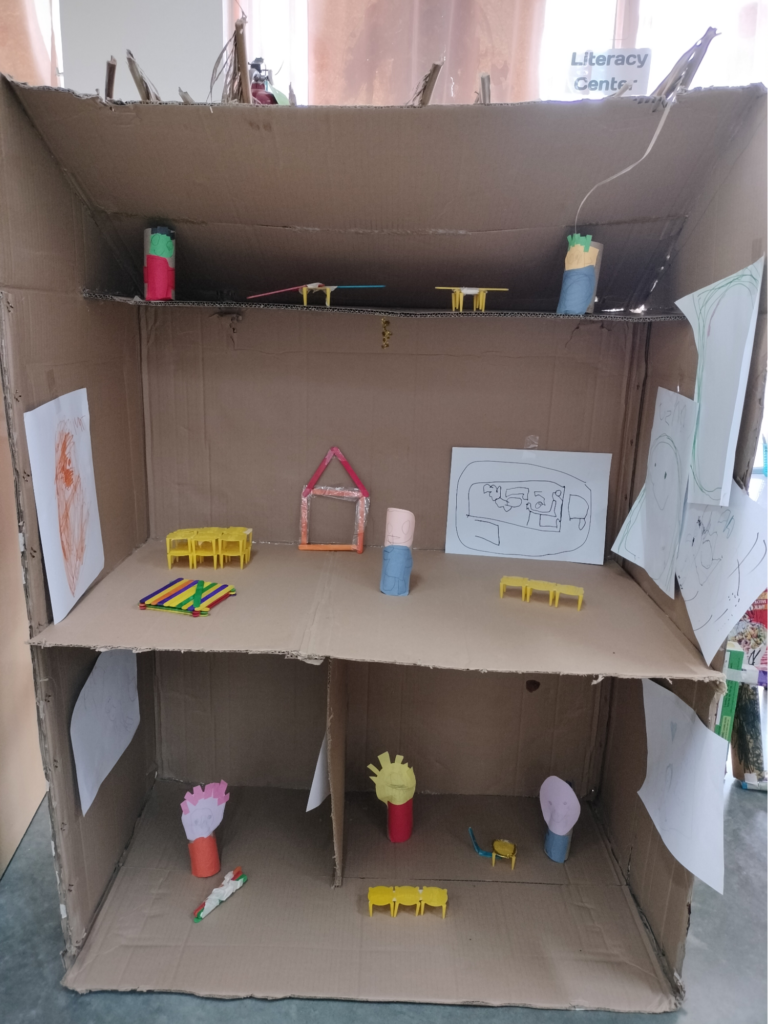
On the other hand, the Kinder and Grade One students were introduced to the different influential people who were not only born and raised in Cebu but once studied here in their own school — CIS. This motivated them to be a good influence on the people around them and positively contribute to the community. They were being principled in choosing the influential people they looked up to. It was inspiring to hear that influence was already happening among themselves when they shared about how the people around them, especially their friends, encouraged them to try new things and be open-minded about their similarities and differences.
Both classes are now reflecting on how they can work around their personal and cultural diversity in order to positively impact the community as a whole.
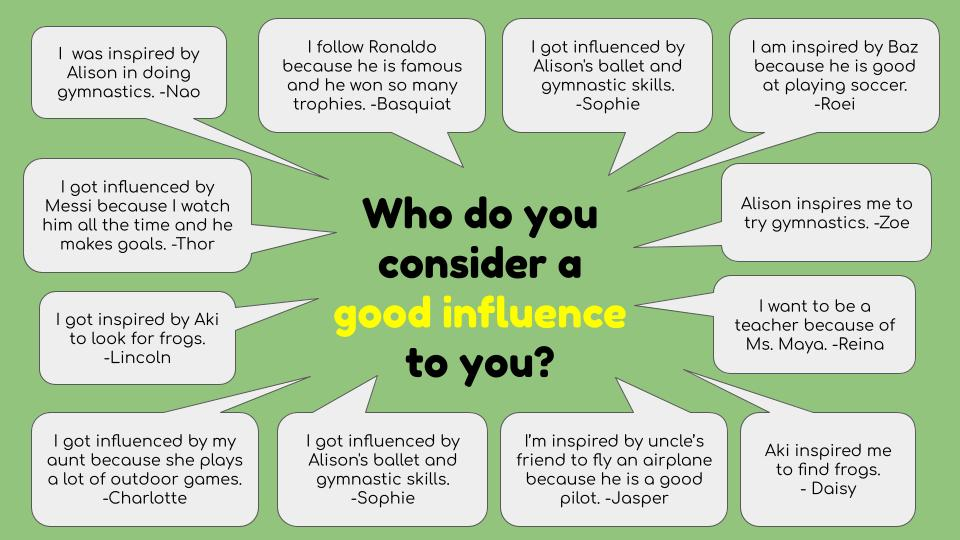
MYP Math Class
by Mr. Daniel Monfre, Mathematics Teacher
Diving into Data with Grade 6 MYP Math
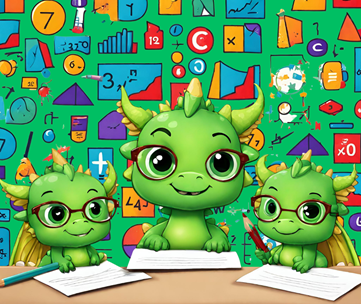 The grade 6 Math class is excited to share their work from the past few weeks diving into the fascinating world of statistics. They have been learning how to collect and analyze data, and have even conducted their own surveys to gather information from their peers.
The grade 6 Math class is excited to share their work from the past few weeks diving into the fascinating world of statistics. They have been learning how to collect and analyze data, and have even conducted their own surveys to gather information from their peers.
Students have explored different data representation methods, including bar graphs, box-and-whisker plots, and stem-and-leaf plots. Working in groups the students have been analyzing data and discussing key elements like mean, median, and mode.
The students represented their findings, here are some examples.
The students have engaged greatly with this topic and are happy to share what they have learned.
Playing with Probability in Grade 7 MYP Math
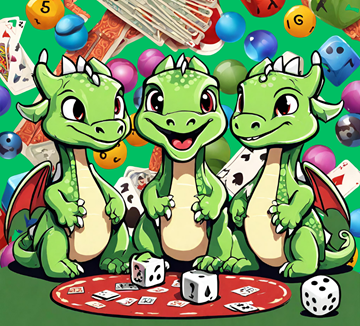 The grade 7 Math class has been playing games and goofing around all in the name of learning. They have spent the last few weeks exploring the world of probability.
The grade 7 Math class has been playing games and goofing around all in the name of learning. They have spent the last few weeks exploring the world of probability.
Using what they learned about theoretical probability they designed a game and calculated the odds of winning. Then they built the game and played it with their friends. Using the results of their games the students reviewed the experimental probability and compared it with their original calculations.
Here are some pictures from our probability game day. The students had a lot of fun playing the games their classmates created and also learned a lot in the process.
Grade 12: Mathematics AA SL
by Ms. Maria Rosandee Tabada, IBDP Physics and Mathematics Teacher
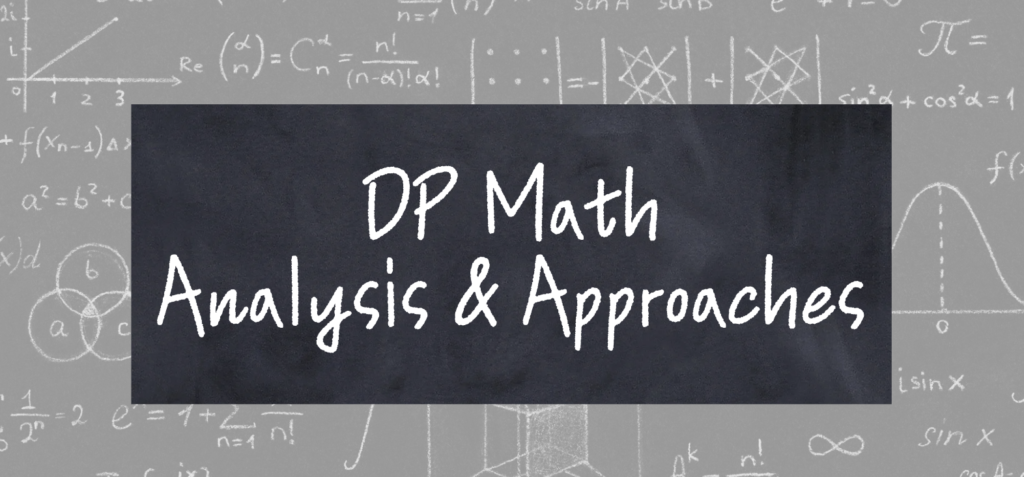
The Grade 12 students are now working on their mathematical exploration, which is the internally assessed component of DP Mathematics courses. This is a report on a topic of the student’s choosing, with a focus on the mathematics of that particular field. The emphasis is on strong mathematical communication and thoughtful reflection.
The exploration is meant to give students chances to deepen their grasp of mathematical concepts and methods, as well as foster a broader appreciation for mathematics.
Before beginning work on the exploration, students completed investigations and modeling activities to practice skills and learn to follow appropriate strategies in a more structured environment before progressing to working independently.
The following are descriptions of the topics explored by the current cohort of Grade 12 AA SL students, with screenshots of their work taken from the draft.
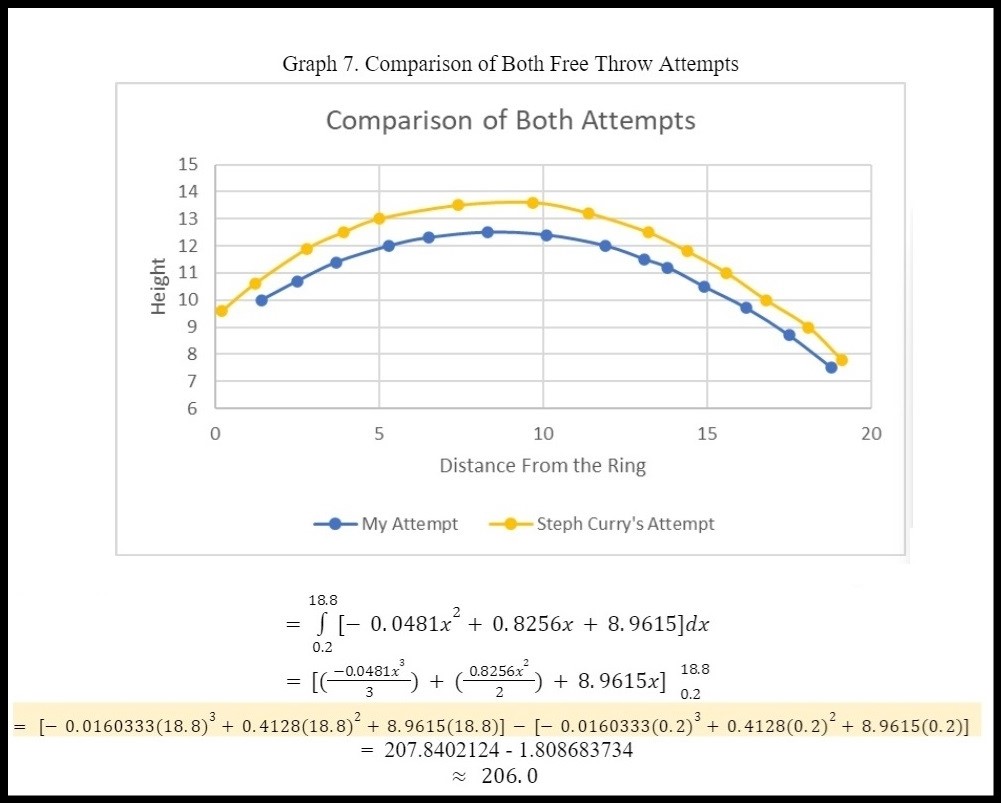
In this exploration, I was determined to model my free throw attempt side by side with one of the best professional basketball players, Steph Curry, in order to determine what I could change on my arc to improve my free throw shot. The height of the arc and the area under the arc will be calculated, as they may correlate to the success of a free throw in basketball.
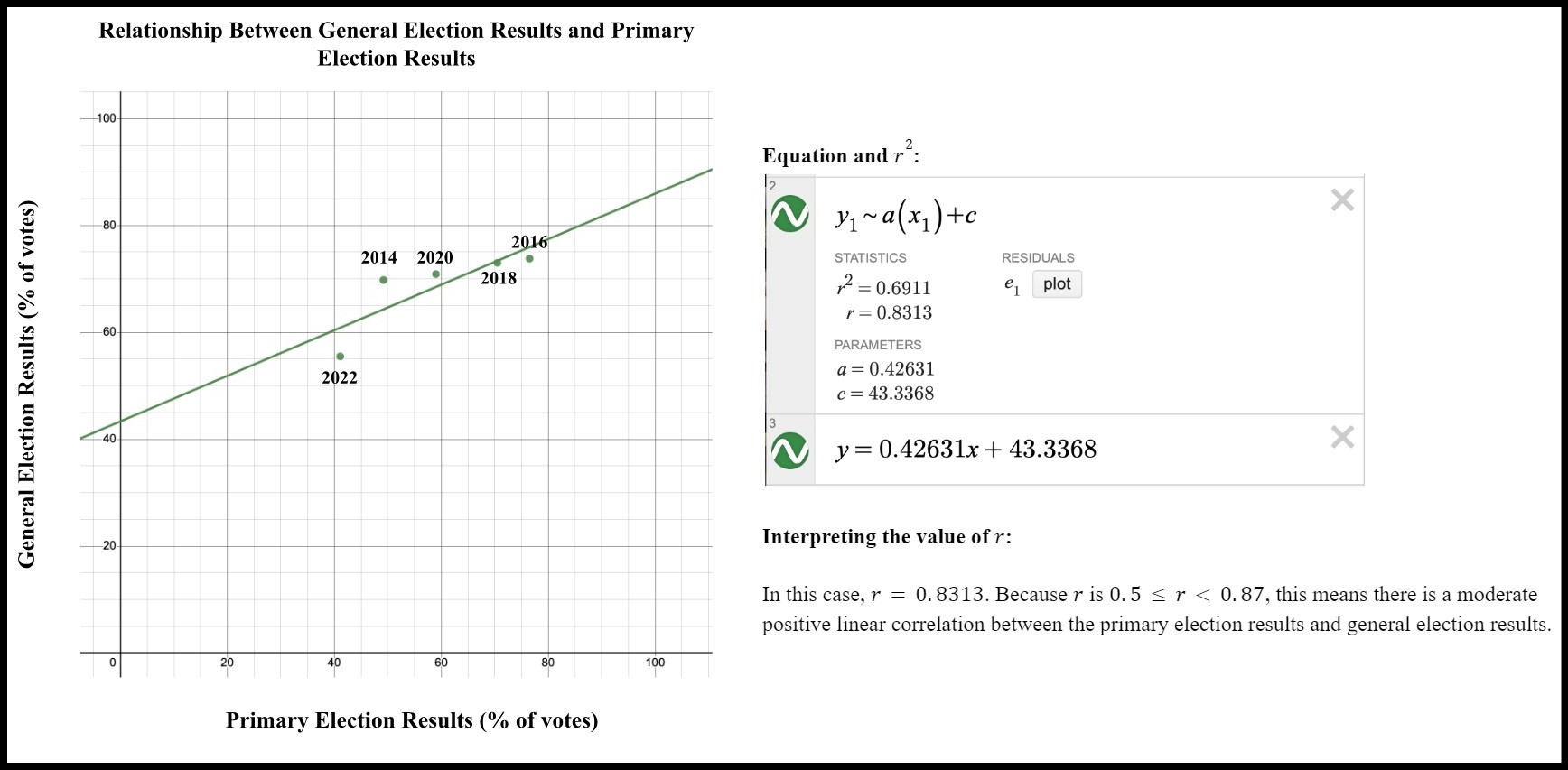
The objective of this investigation is to explore factors that help predict election results. As a humanities student, I have a deep interest in politics and wanted to consider which factors allow politicians to be successful in gaining votes. I wanted to view this idea from a mathematical perspective and see how the results differ for an array of variables.
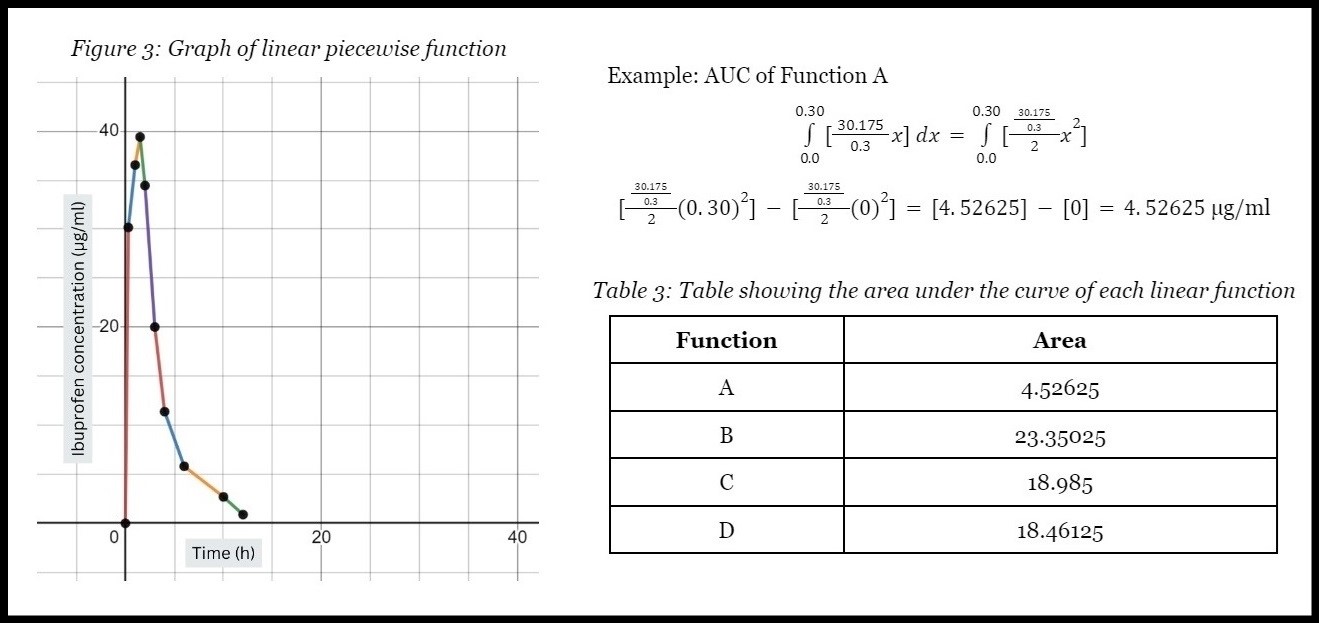
As someone who’s interested in the field of medicine, I’ve always wondered how ibuprofen behaves and distributes in my body after administering it. For this reason, I decided to investigate the study of pharmacokinetics and look into the profile of ibuprofen.

The aim of this investigation is to find the volume of revolution of a Pororo juice bottle with the help of technology from Geogebra and calculations to find the functions that compose the bottle’s contour. The volume will be calculated using functions and integral calculus, and then compared with the real volume of the product.
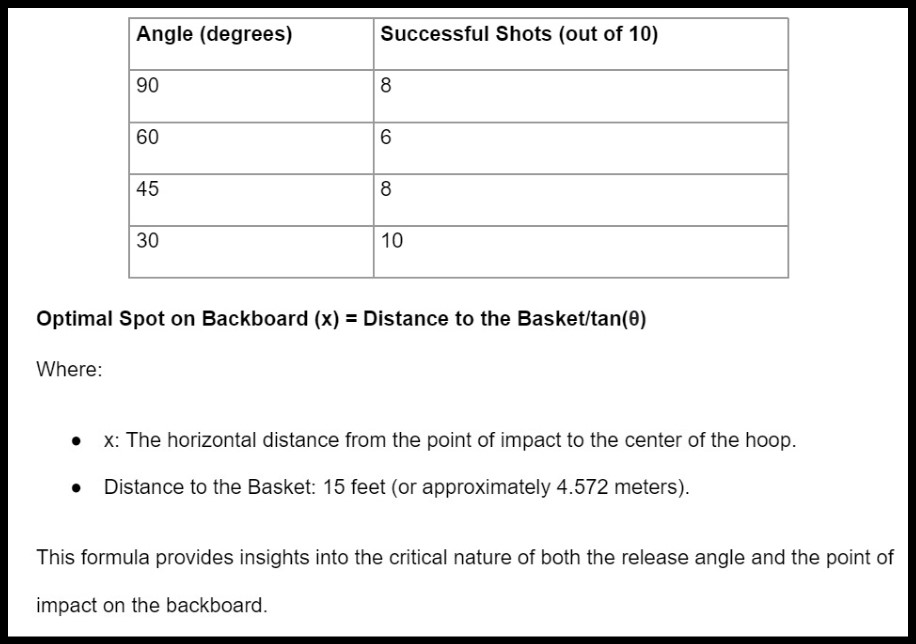
The primary aim of this investigation is to analyze the mathematical principles governing the bank shot in basketball, with a focus on understanding the impact of angles on a player’s ability to make successful bank shots. Through experimentation and mathematical modeling, the results will provide insights that can assist basketball players in improving their bank shot accuracy and consistency.
College & Careers Counselor Corner
by Ms. Jenny Basa, College Counselor
November 17
Friday
9:00 – 9:45 AM
Venue: Canteen Annex
Link to sign up
Carleton College (USA) Info session with Mr. Steve Duba-Maack about the application process, requirements and scholarships & programs offered.

November 18
Saturday
8:45am – 3:50pm
Each topic is a 1-hr session, you may choose to register for more than one.
Link to register
National University of Singapore – This event, conducted via Zoom, will be hosted by the NUS Office of Admissions and various faculties. Students will have the chance to hear from professors and students from the different colleges.
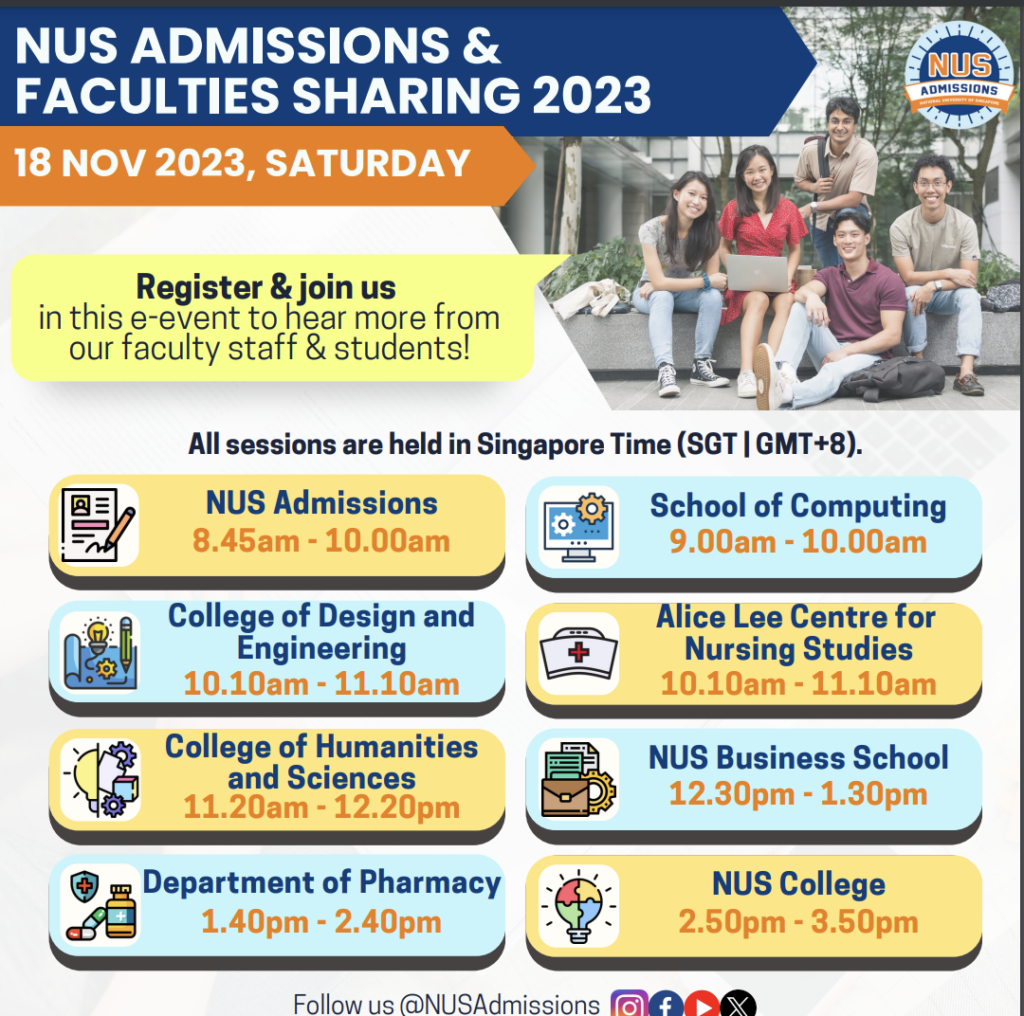
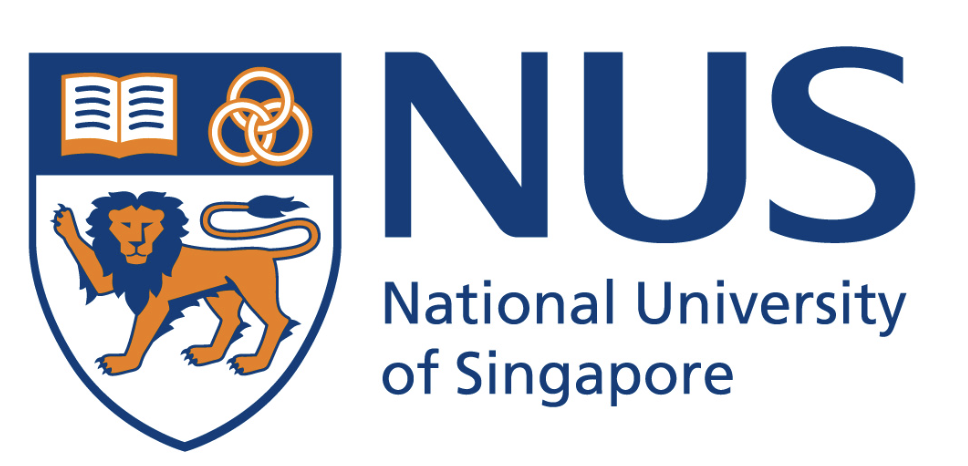
SAT Update
| Test Date | Deadline for Registration, Changes and Regular Cancellation |
| December 2, 2023 | November 17, 2023 |
| March 9, 2024 | February 23, 2024 |
| May 4, 2024 | April 19, 2024 |
| June 1, 2024 | May 16, 2024 |
To register for the SAT, you may click on this link. If you need assistance or have any questions, please feel free to email Ms. Jenny Basa at jbasa@cis.edu.ph.
The Dragon’s Report Card
In this episode, the members talk about interesting food combinations as they offer their opinion and past experiences with them. Hear more from this exciting episode!



